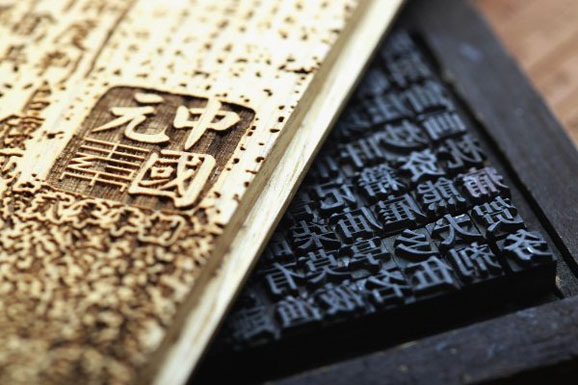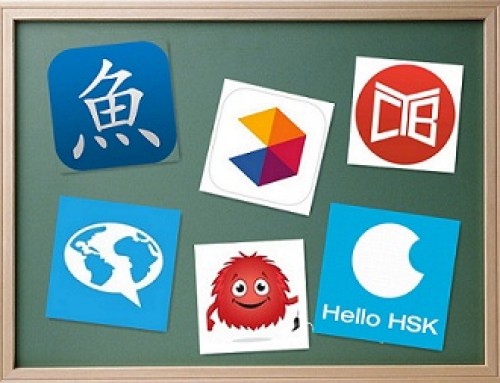100 Most Frequently Chinese Characters
——-Learn Chinese Characters
 How many Chinese characters (汉字 – hàn zì) do you know? Do you know 100 frenquently Chinese Chinese characters? According to research, if you are familiar with the 500 most frequently characters in Chinese then you can read 75% of modern Chinese. If you know 1000 frequently characters, you can read 89%. 2000 frequently characters gives you 97% coverage. 3000 frequently Chinese characters gives you almost complete coverage of modern Chinese (99%); When you are reading Chinese you will find that the same characters appear again and again and gradually become more familiar. 3000 characters should be more than sufficient for most learners.
How many Chinese characters (汉字 – hàn zì) do you know? Do you know 100 frenquently Chinese Chinese characters? According to research, if you are familiar with the 500 most frequently characters in Chinese then you can read 75% of modern Chinese. If you know 1000 frequently characters, you can read 89%. 2000 frequently characters gives you 97% coverage. 3000 frequently Chinese characters gives you almost complete coverage of modern Chinese (99%); When you are reading Chinese you will find that the same characters appear again and again and gradually become more familiar. 3000 characters should be more than sufficient for most learners.
Here are the 100 most frequently used Chinese characters, let’s try and learn right away. If you can master these characters, you’ll be well on your way to becoming fluent in Chinese.
| 的 | de | grammatical particle, of |
| 一 | yī | one, a little |
| 是 | shì | to be |
| 不 | bù | not |
| 了 | le | verb particle marking a new situation or a completed action |
| 人 | rén | person |
| 我 | wǒ | I, me, my |
| 在 | zài | at, located at |
| 有 | yǒu | have, there is |
| 他 | tā | he, him, |
| 这 | zhè | this |
| 中 | zhōng | in the middle of |
| 大 | dà | big |
| 来 | lái | come |
| 上 | shàng | above, on, over, top, (go) up, last |
| 国 | guó | country, state, nation, |
| 个 | gè | measure word |
| 到 | dào | to, towards, until, arrive, reach |
| 说 | shuō | speak, say (=说话 shuōhuà) |
| 们 | men | (ex. 我们 | wǒmen | we) |
| 为 | wèi | for, for the sake of, in order to |
| 子 | zǐ | child, son |
| 和 | hé | and, together, with |
| 你 | nǐ | you, your |
| 地 | dì | earth, ground, soil, place, position, distance |
| 出 | chū | go out, come out, in direction out from something |
| 道 | dào | way, path, channel, way, say, a streak (of light), doctrine, |
| 也 | yě | also, as well |
| 时 | shí | period, season |
| 年 | nián | year |
| 得 | de | (ex. 走得快 | zǒude kuài | walk quickly) |
| 就 | jiù | just, simply, right away 就要 jiùyào about to (do something) |
| 那 | nà | that |
| 要 | yào | want, will, shall, need, important, essential |
| 下 | xià | below, under, (go) down, next (as opposed to previous/last) |
| 以 | yǐ | use, take, according to, because of, in order to |
| 生 | shēng | give birth, life |
| 会 | huì | can, able, meet, meeting, society, union, party |
| 自 | zì | from, since |
| 着 | zhe | verb particle marking a continuing progress/state |
| 去 | qù | go, leave, depart |
| 之 | zhī | subordinator similar to 的 de |
| 过 | guò | pass, cross, go by, exceed, |
| 家 | jiā | home, house, family |
| 学 | xué | study, learn |
| 对 | duì | correct, answer, treat, agree, mutual, pair |
| 可 | kě | ~able, (=可以 kěyǐ) may, can |
| 她 | tā | she, her |
| 里 | lǐ | neighbourhood, half kilometer, |
| 后 | hòu | behind, back |
| 小 | xiǎo | small |
| 么 | me | (interrogative suffix) 什么? shénme? / What? |
| 心 | xīn | heart |
| 多 | duō | many, much, more |
| 天 | tiān | sky, heaven, day |
| 而 | ér | and, furthermore |
| 能 | néng | can, be able |
| 好 | hǎo | good, good to…, easy to… |
| 都 | dōu | all |
| 然 | rán | right, correct, so, like that |
| 没 | méi | (=没有 méiyǒu) haven’t, there isn’t |
| 日 | rì | sun |
| 于 | yú | in, at, for, to, from, by, than |
| 起 | qǐ | rise, start |
| 还 | hái | still, yet |
| 发 | fā | deliver, utter, express, shoot, emit, develop, expand |
| 成 | chéng | (=成为 chéngwéi) become, ; 成功 chénggōng succeed; 完成 wánchéng accomplish, complete, |
| 事 | shì | matter, affair, thing, event, accident, job, responsibility |
| 只 | zhǐ | only, just, merely |
| 作 | zuò | do, make |
| 当 | dāng | serve as |
| 想 | xiǎng | think, feel, consider, want, remember |
| 看 | kàn | see, look at, think |
| 文 | wén | language, literature |
| 无 | wú | without, nothingness, have not |
| 开 | kāi | open |
| 手 | shǒu | hand, a person skilled in something |
| 十 | shí | ten |
| 用 | yòng | use |
| 主 | zhǔ | lord, master, host, god, |
| 行 | xíng | go, OK |
| 方 | fāng | side, square |
| 又 | yòu | again, both… and… |
| 如 | rú | like, as, as if |
| 前 | qián | in front, previous, ago, former, first |
| 所 | suǒ | place |
| 本 | běn | basis, origin, edition classifier for books, periodicals, files, etc. |
| 见 | jiàn | appear to be, meet with, call on |
| 经 | jīng | longitude (both geographic and in Chinese medecin), scripture, constant, regular, , deal with |
| 头 | tóu | head, top, first |
| 面 | miàn | face, surface, |
| 公 | gōng | public, official |
| 同 | tóng | same, with |
| 三 | sān | three |
| 已 | yǐ | already |
| 老 | lǎo | old, venerable, outdated |
| 从 | cóng | from, through, join, follower, secondary |
| 动 | dòng | move, change, arouse |
| 两 | liǎng | two (before classifier), 50 grams |
| 长 | cháng | long, lasting, length |





